Willie Jennings on a theology of joy; my chapter now published on children, exploitation and a missional reading of Psalm 10; and 'roots down, walls down' as a posture for learning
Welcome to my newsletter, ‘Bible, Mission, and More’, where I share what’s on my mind as I teach, research, and write on the Bible and mission, children-at-risk in the Bible and contemporary society, Psalms and Wisdom Literature, and a range of other topics. I teach at All Nations Christian College in the UK, though views are my own.
Each Tuesday I’ll share something I’ve read, something I’ve written or recorded, something on learning and teaching, and a quote to reflect on.
Something read – Willie Jennings on a theology of Joy
I’m beginning to do some work on joy in the Old Testament and came across a project of the Yale Center for Faith and Culture on ‘Theology of Joy and the Good Life’. Their YouTube channel contains a number of conversations with different scholars on the nature of joy. One such conversation is Willie James Jennings and Miroslav Volf.
One of Jennings’ main points is that joy can be an act of resistance. He puts it beautifully:
WJ: I look at joy as an act of resistance against despair and its forces, all the forces of despair. And joy in that regard is a work that can become a state that can become a way of life.
MV: And it resists what?
WJ: Despair. Despair and all the ways that despair wants to drive us toward death and wants to make death the final word. And death in this regard is not simply the end of life but it's death and all its signatures: death, violence, war, debt; all the ways in which life can be strangled and presented to us as not worth living.
He then goes on to talk about the need to take joy seriously, approaching it intentionally, and discusses how joy is expressed in contexts of marginalisation, oppression, and poverty. There is so much to unpack here. The videos were made during a consultation on joy which led to the 2015 Fortress Press volume, Joy and Human Flourishing: Essays on Theology, Culture, and the Good Life. This is a topic I will be returning to.
Something written – chapter now published on exploitation and a missional reading of Psalm 10
Recently I posted about a forthcoming chapter I had written on Psalm 10. The edited volume it is a part of has now been published by Regnum as Stepping Out of the Traffick: Pausing for Theological Reflection on Christian Response to Sexual Exploitation and Trafficking, edited by Glenn Miles, Christa Foster Crawford, and with Bill Prevette.
I entitled my chapter, ‘Connecting a Missional Reading of Psalm 10 with the Trafficking, Abuse, and Exploitation of Unaccompanied Asylum Seeking Children in Europe.’
The aim of the chapter is to try to join together my two main research interests in missional hermeneutics and children-at-risk in the Bible and the contemporary world. First I explain some of the vulnerabilities faced by unaccompanied young people moving across Europe. I then set out an understanding of missional readings in general and then specific to the Psalms. I work through Psalm 10 making connections to the issues raised concerning the exploitation of Unaccompanied Asylum Seeking Children.
To give you a sense of the overall volume here are some images from the cover, contents page, and the opening of my chapter.
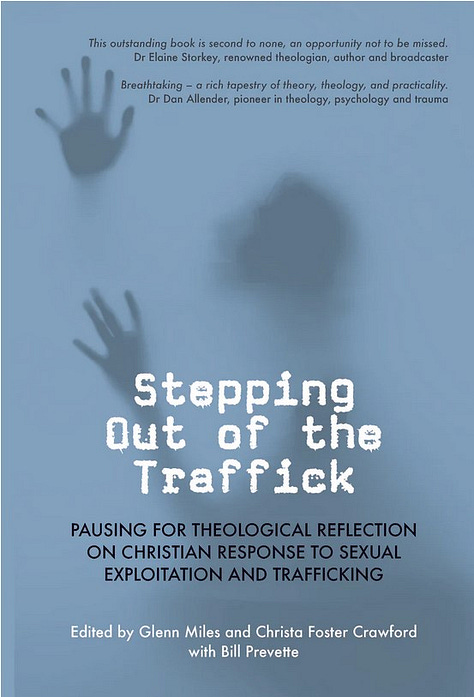
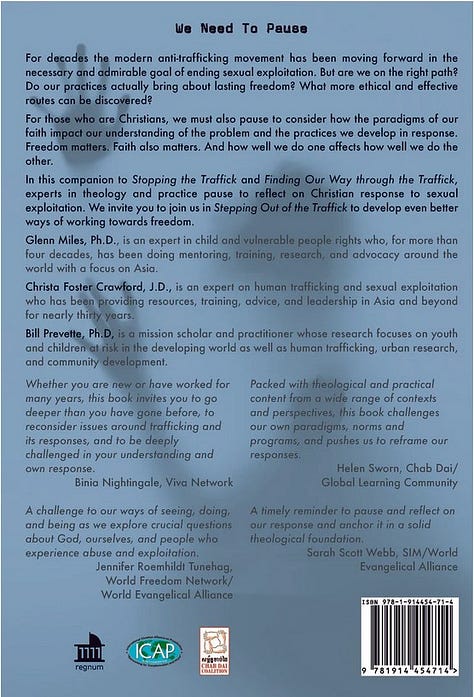
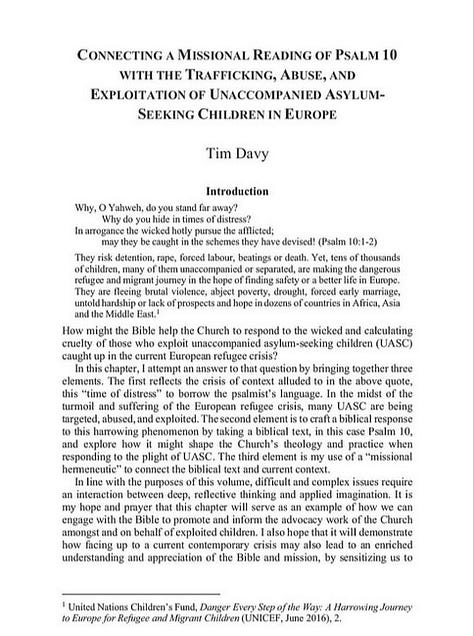
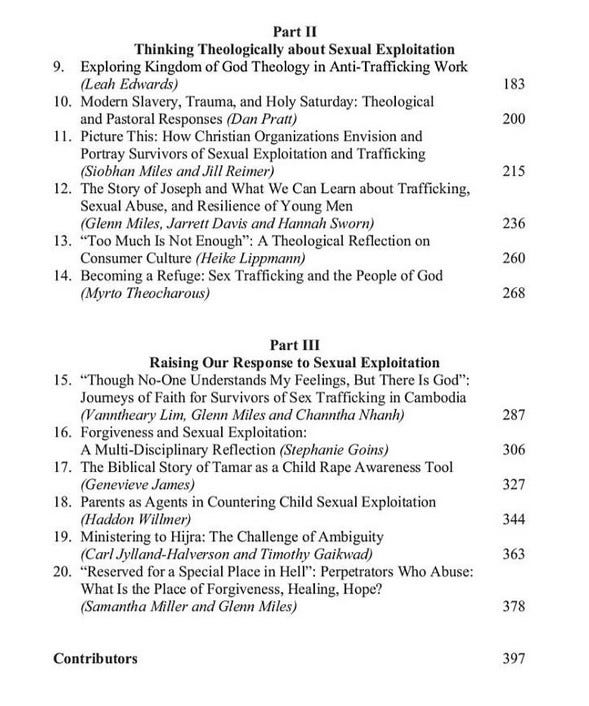
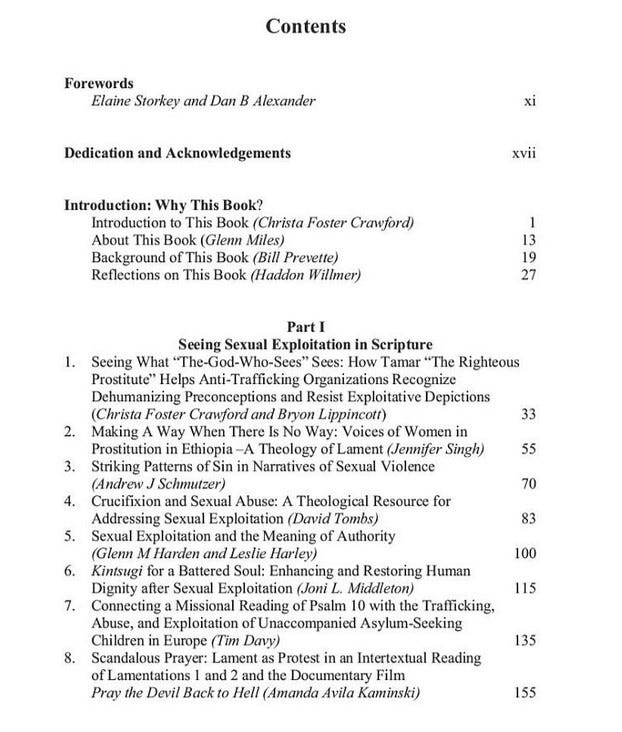
Learning and teaching – ‘roots down, walls down’ as a posture for learning
As we near the beginning of the academic year in the UK it is helpful to consider the posture with which we come to our work, either as a student or teacher. One of the pieces of wisdom I come back to most regularly is a former colleague’s advice he would regularly pass on to students: ‘roots down, walls down.’
By this he meant that students should look to deepen their sense of what they believe and why. You want to grow in your convictions and confidence as you work through the fundamental issues of your faith (some of which, of course, might change as a result of being exposed to new ideas).
But, at the same time, a healthy learning experience should lead to a healthy posture towards other people and ideas. You may strongly disagree with what they are saying but you remain open to learning with and from them. This is an antidote to a defensive way of learning that feels threatened by anything or anyone that holds a different view. It is a move towards a more flourishing way of learning, rooted in your convictions but generous towards others.
Quote – Willie Jennings on working with what’s been thrown away
‘We are not attuned to a world in which we have to work with what’s been thrown away because we are the ones who throw away.’ (from the Theology of Joy video, above)
Thanks for joining the journey and see you next week,
Tim



